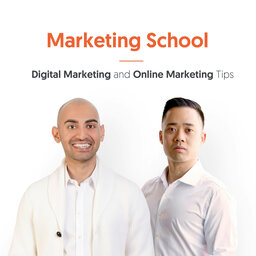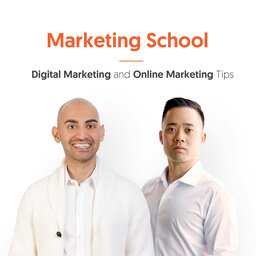What Intuit’s $12B Acquisition of Mailchimp Means #1880
In episode #1880, Neil and Eric talk about Intuit’s acquisition of Mailchimp. There are so many valuable lessons that we can all learn from Mailchimp’s slow and steady rise to the top, so tune in to hear it all.
TIME-STAMPED SHOW NOTES:
- [00:25] Today’s topic: What Intuit’s $12B Acquisition of Mailchimp Means
- [00:30] A brief history of MailChimp and Intuit.
- [00:50] The thinking behind why Intuit bought Mail
- [01:42] Hope that we can gain from Mailchimp’s success.
- [03:00] Other lessons we can learn from Mailchimp success.
- [04:26] The benefits of being bootstrapped.
- [05:08] That’s it for today!
- [05:08] To stay updated with events and learn more about our mastermind, go to the Marketing School site for more information or call us on 310-349-3785!
Links Mentioned in Today’s Episode:
Mailchimp Intuit
Leave Some Feedback:
- What should we talk about next? Please let us know in the comments below
- Did you enjoy this episode? If so, please leave a short review.
Connect with Us:
Learn more about your ad choices. Visit megaphone.fm/adchoices
 Marketing School - Digital Marketing and Online Marketing Tips
Marketing School - Digital Marketing and Online Marketing Tips


